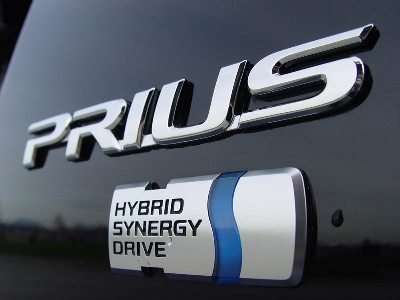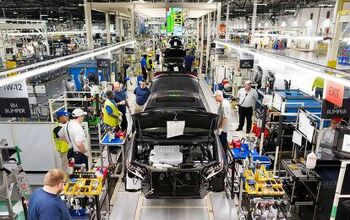Toyota to Stretch Prius Brand
A brand is a promise to the consumer. It’s the umbrella under which all products must shelter. All the people responsible for a brand must ensure that it meets that promise. The Toyota Prius is a promise of reliable transportation that achieve high-mileage with low emissions. So it’s no wonder that Toyota has decided to stretch the brand to other vehicles. Oh, wait, the Prius isn’t a brand. It’s a model within a brand, which contains other examples of reliable transportation that achieves high-mileage with low emissions. Is that confusing? Well if it isn’t now, it soon will be. “The Highlander hybrid and Camry hybrid do OK, but calling it ‘Synergy Drive’ never resonated with consumers,” veteran Toyota dealer Earl Stewart told Automotive News [sub]. “But they can make hay on the Prius name. It’s a magic name. If somebody says ‘I drive a Prius,’ everybody knows what he means.” But for how long? The truth about a brand is that its products must fulfill the brand’s promise, or the brand dies. Confusing that brand diminishes it and alienates the people who gave birth to it in the first place. Maybe not straight away, but eventually. And forever.
More by Robert Farago

































Comments
Join the conversation
I agree with most of the points of the last two posts: "And I’d argue that part of what makes Prius owners feel good about their cars is the fact that it’s a “special” design not shared with anything else in the Toyota lineup." This is very important. The civic Hybrid and all other hybrids that are lookalikes with their non-hybrid siblings did not do very well. "The fact is that any car can be “hybridized,” but only the Prius has been able to translate that into large-scale sales, and its design is a big part of that." I believe in the case of the Prius II and III, Toyota went the extra mile (or thousand miles) and perfected an almost optimal design, with very careful aerodynamics etc, so it gets 10 MPG above all other hybrid sedans, and 20 MPG over the Escape small Crossover Hybrid, which gets 30 overall (33 at best, at low speeds in the city, and 27-30 highway) I agree that a RAV4 with 40, or even 35, MPG would be impressive, but I doubt that the RAV4 can do that well unless it it drastically redesigned. After all, the RAV4 is EScape-sized and weight.
I am not impressed with crossovers, few people need them, or need AWD-4WD. All most people need are small wagons, with a lot of interior space, and the Prius could be stretched to be a 6-7 passenger wagon (the last 2 seats for kids mostly), probably with only a minor weight penalty (200-300 lbs) over the base PRius, and only about 5 MPG less (still a most impressive 45). But if Toyota goes crossover with a RAV4 hybrid, it will not be able to do more than 35 MPG.
Autosavant, My thoughts exactly. Some people/families eventually outgrow a Prius, but might not need anything as gargantuan as a Sienna. A somewhat enlarged Prius, with the all important 3rd row, ought to fit those needs fairly well, while still delivering outstanding mileage and green styling.
It could work if they extended the Prius brand selectively to include a small minivan (think Mazda 5), a light sports car (Celica), a convertible (MR2) and maybe even a coupe (CRX). They could go the 'halo' route and build a limited edition Tesla like car too. The important thing is to preserve the things that make a Prius a Prius - >10 mpg advantage over nearest non-hybrid alternative, minimal evidence of parts-bin design with vanilla Toyota models, refinement and reliability.